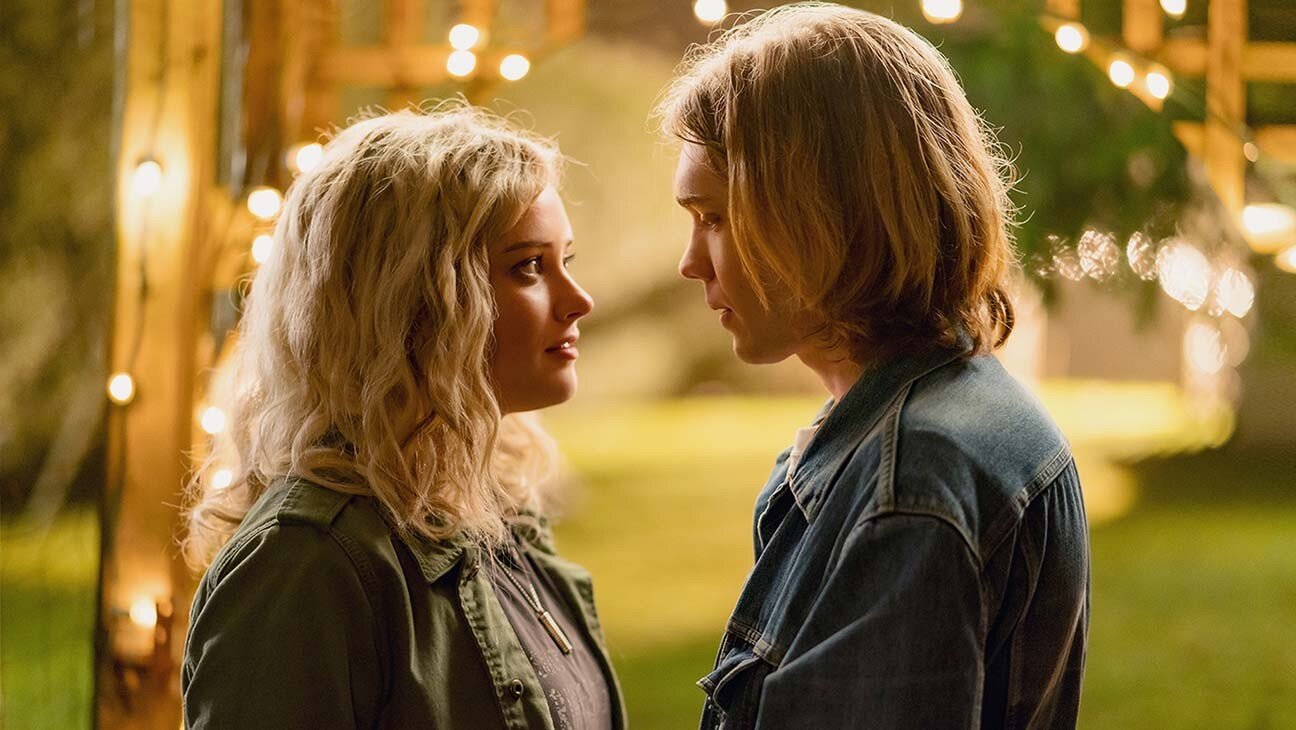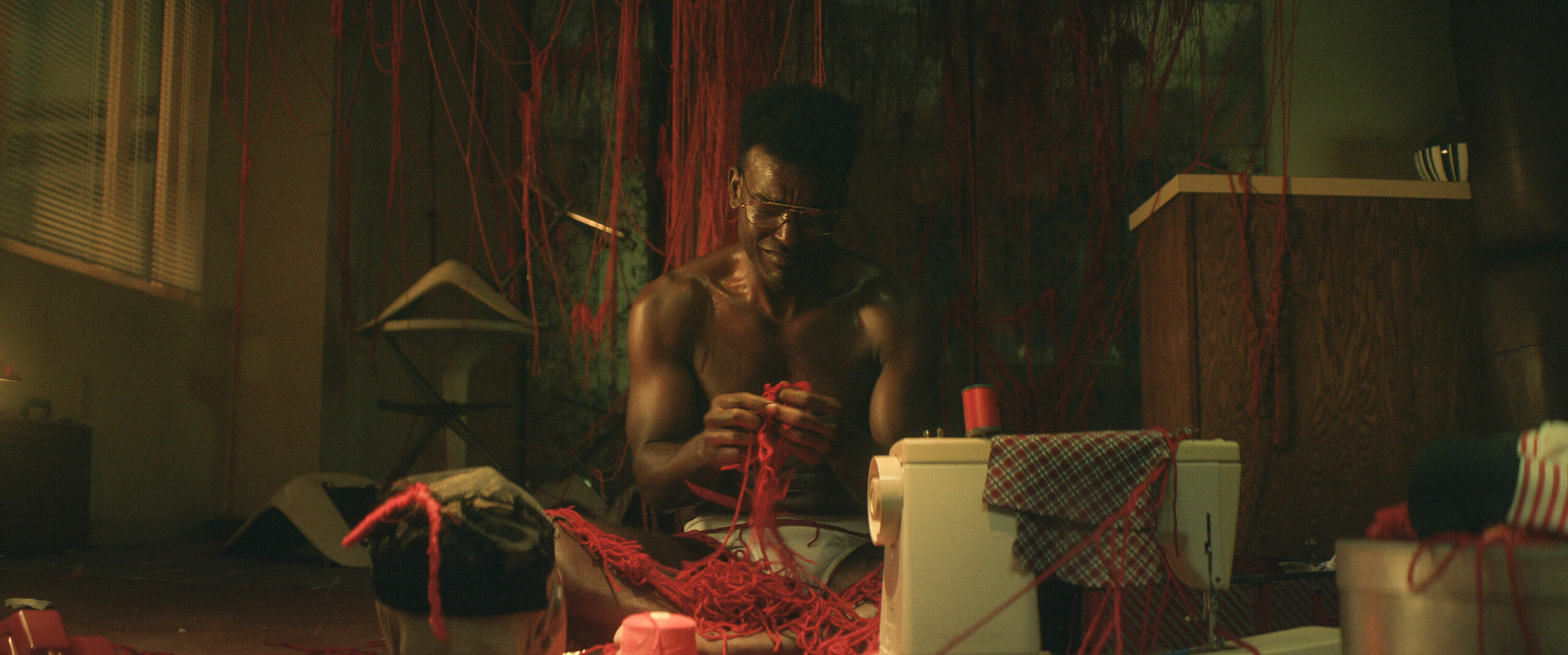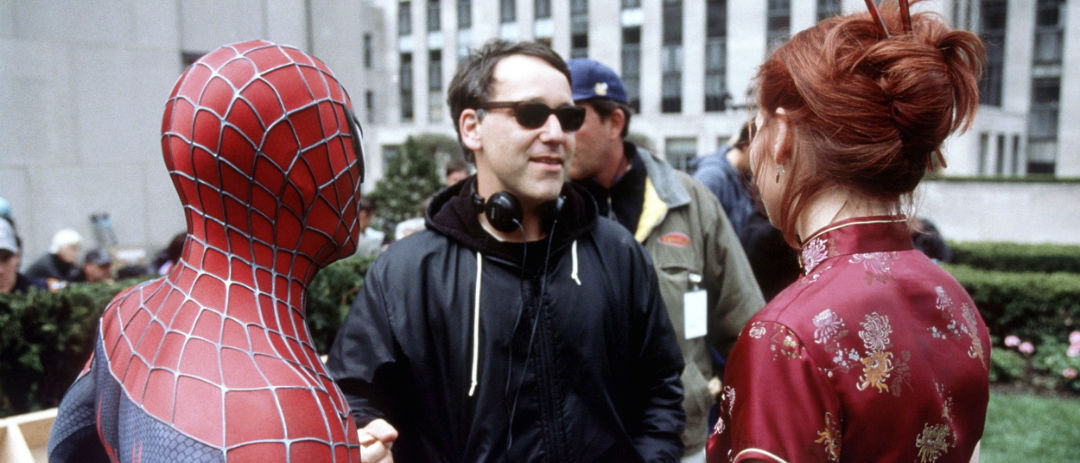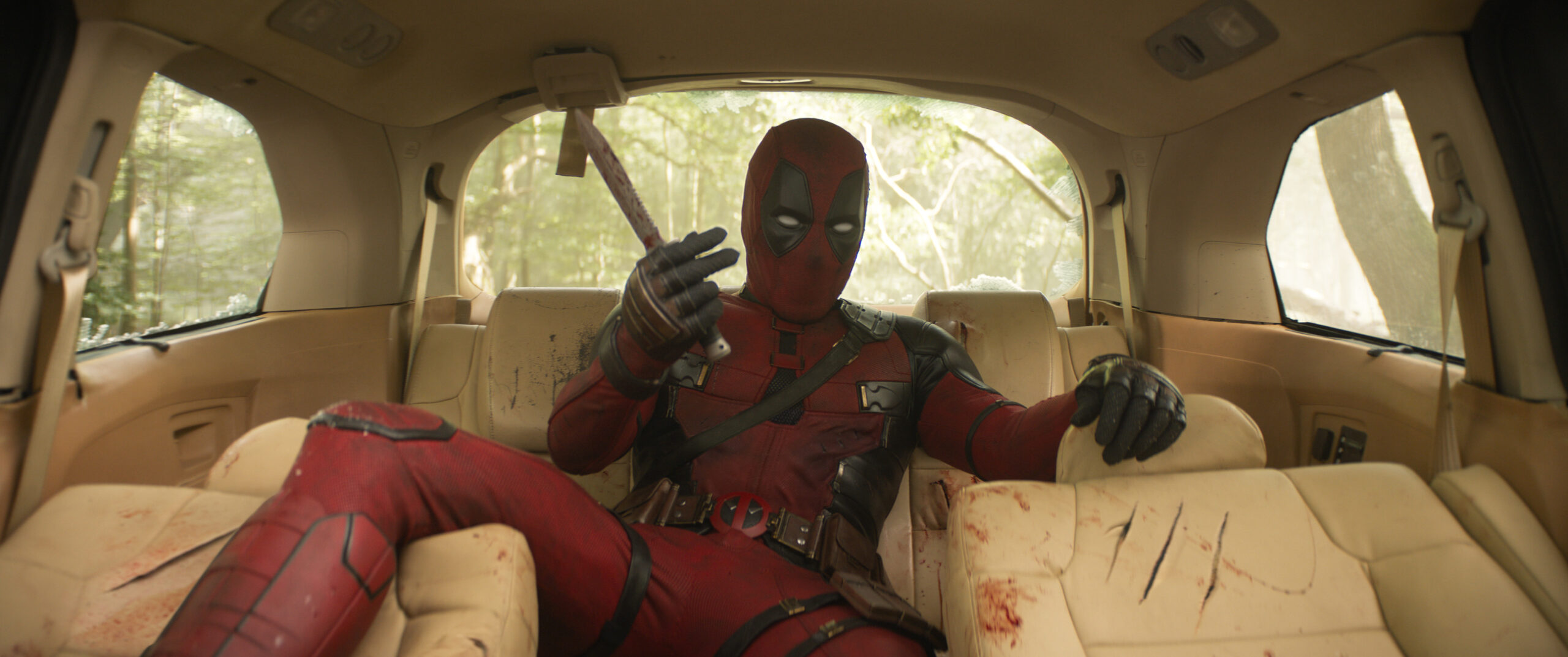Some films have the simple message of living life to the fullest because you never know when your time will come. That is the case for Paramount Pictures’ Spontaneous, starring Katherine Langford and Charlie Plummer.
In Spontaneous, students in a high school start to inexplicably explode. No not in any sort of metaphorical way, just literally exploding. Now the senior class of this school including Mara (Langford) and Dylan (Plummer) struggle to survive. Knowing that every second could be their last. They soon discover the joy of living for today, when tomorrow may not be an option.
Spontaneous is directed by in-demand screenwriter Brian Duffield. Who you may know from The Divergent Series: Insurgent and Jane Got a Gun. This film marks his directorial debut. In honor of its release today in select drive-ins and VOD & digital platforms on October 6th, LRMOnline had the opportunity to talk with Duffield. In the interview, he talks about the chemistry of Langford and Plummer on and off-screen. As well as how he made the modern teenager explode. You can read it down below!
ALSO SEE: UTOPIA: WHERE IS JESSICA HYDE? A TALK WITH SASHA LANE AND JAVON WHITE [LRM INTERVIEW]
Emmanuel Gomez: You capture a lot of different types of moods that teenagers have as they’re going through high school. What made you so successful at capturing that teen spirit?
Brian Duffield: My immaturity. I think it’s a couple of things. I think so much of it’s the book. That’s a great question that Aaron should probably answer a little bit more. So much of the dialogue is from the book, so I just steal it and take credit. Then, I think too, there was a script before Katherine, and Charlie and Hayley showed up. I think Charlie was 18 when we were filming and Katherine was 19 or 20. So it’s who they are. Not that they were coming to me and saying, “Kids don’t say these lines,” but they know how they talk and how they talk with their friends and how they act. So I think putting my faith into them hopefully paid off in that department.
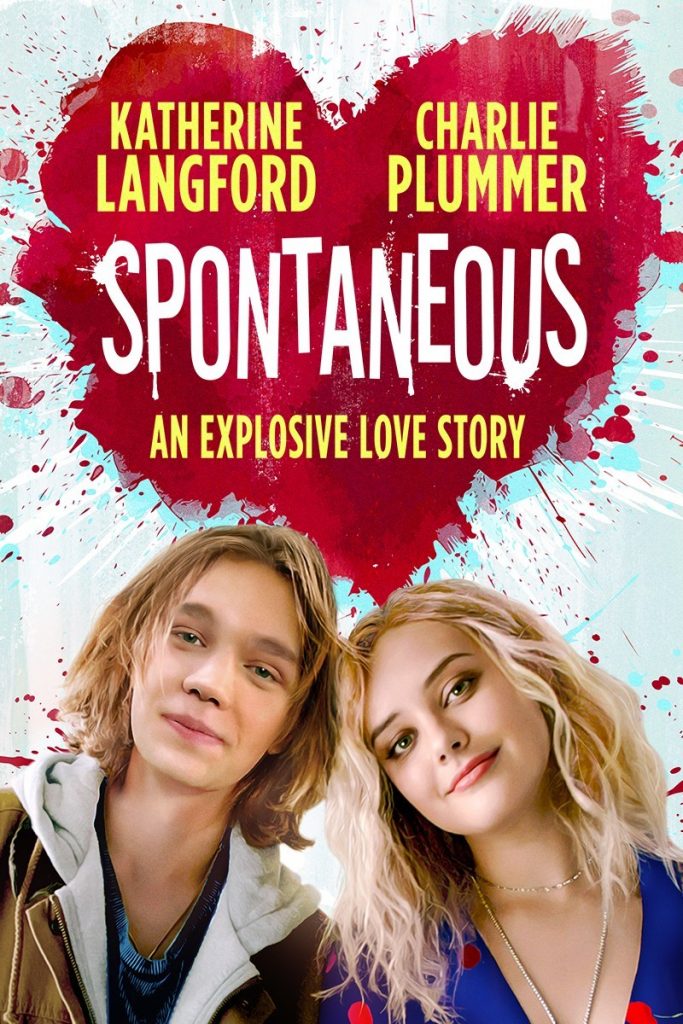
I think too, then, it’s the tone of the movie and it’s a really tricky tone because obviously, kids are dying throughout the movie. But wanting to be an enjoyable movie-going experience. So playing a little bit where you’re not going so far into a style that is too big so that the popping feels like just another crazy thing that happens in the world of this movie.
Also having little touches such as Katherine. Once or twice turning to the camera kind of inside of her voice over, even just her voiceover. Having it feel a little different than like I’m walking you through what’s happening. Having it feel like she’s not usually the person that should be doing voiceover kind of thing. That was a challenge too, because Katherine’s show, obviously, was so iconic. So much of that show is her tapes, so finding that perfect balance where she wasn’t coming across as Hannah Baker, but she was coming across as Mara Carlyle.
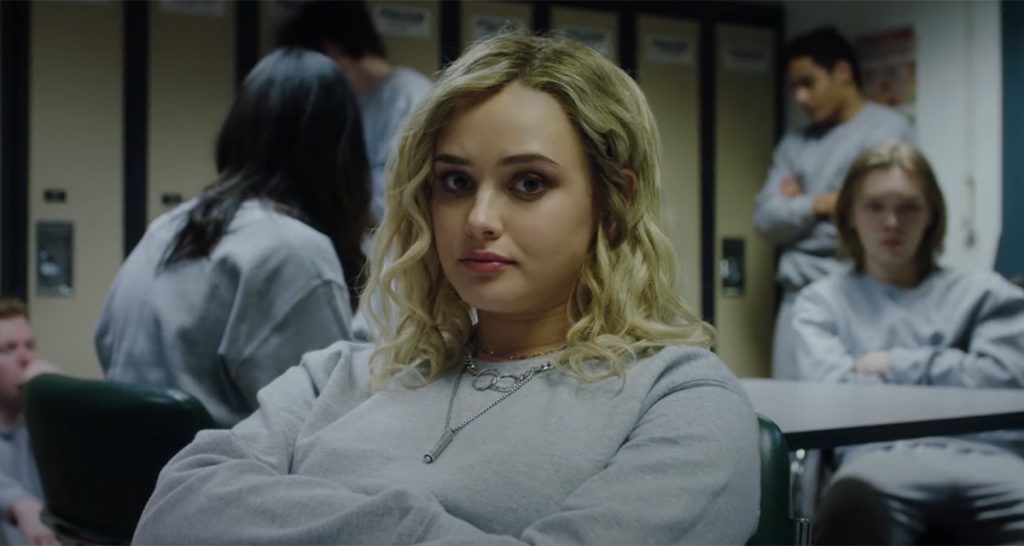
It’s a testament to Katherine that she just kind of instantly keyed in to create this entirely different high school student going through a very traumatic experience. How her voice was so unique and specific that I never had to worry about these two dual Katherine projects having so much voiceover because honestly, they couldn’t be more different. That’s entirely a testament to how talented Katherine is. But overall, I think it’s probably my immaturity that brought that goofier tone.
ALSO SEE: JOSH RUBEN AND CHRIS REDD ON COMEDY IN HORROR WITH SCARE ME [EXCLUSIVE INTERVIEW]
Emmanuel Gomez: Staying on that subject, Katherine’s Mara. One thing I really liked about the film was the relationship between Mara and Dylan, Charlie Plummer. Can you talk about the experience of working with them and how that developed on set?
Brian Duffield: Yeah. It was great in terms of, It was funny. We talked about this yesterday a little bit. I was in Vancouver prepping the movie, and we hadn’t case Dylan yet. I had talked to Charlie a bunch and really enjoyed him. But Katherine, for a couple of reasons, they were never able to test together. So they went and had dinner one night, maybe like six or seven weeks before shooting, and Katherine called and was like, “He’s great. He’s exactly what you want Dylan to be. It has to be Charlie.” I went with my gut and trusted Katherine. I was like, “I believe you know what …” because we were talking so much about what the movie needed, especially in that relationship.
So, I never saw them together until a couple of days before we were shooting. Which was a little nerve-racking. Charlie’s the best actor and the loveliest guy. But you don’t really know how chemistry’s going to work if you seat people together. They kind of, right off the bat, I think just working with two powerhouse actors that knew exactly what I wanted. I didn’t want it to be a steamy, intense, broody high school relationship. I feel like there’s a lot of those relationships that are really intense.
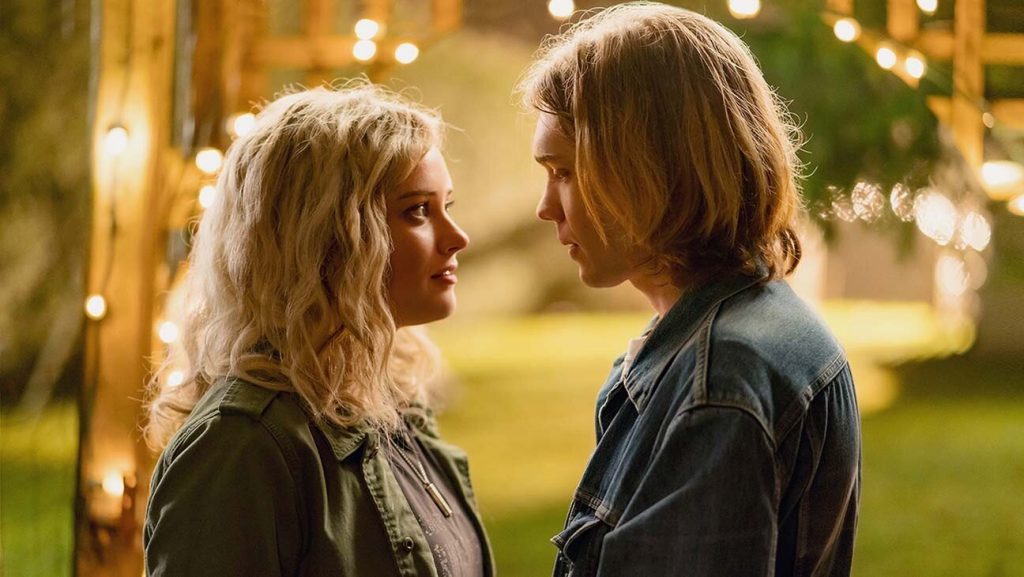
What’s happening in the movie is so intense. Dylan’s character makes peace with that before we meet him in the movie. He loses this burden of the expectations of the rest of his life and is just like, “I always liked this girl. I bet we’d have a lot of fun hanging out. Even if she says no, I bet we’d still have fun, be friends.” So, one of the things we talked about a lot was, I really want every time another YA movie might go, and it’s a really serious or kind of flowery direction, I want you guys to kind of ruin that moment and say something really stupid. Or make the other person laugh.
The thing for me, what was most important was that you just felt like these guys just love spending time together because there’s no conflict in their relationship. Which is narratively tricky, but I think we get away with it because of this insane world that they’re living in. So, it’s not like Katherine has an ex-boyfriend, or Charlie has these secrets or something. It’s very right up front where they just are two kids that really enjoy making each other laugh and enjoy this kind of banter and relationship that they have.
ALSO SEE: UTOPIA SHOWRUNNER AND WRITER GILLIAN FLYNN ON PANDEMIC PARALLELS AND MORE [LRM ONLINE INTERVIEW]
I feel like that’s something that’s a little unique in that kind of YA space. We see them having the best time with each other but clearly adore each other. I felt like that was really how Katherine and Charlie’s in-real-life relationship evolved. Where if we weren’t shooting, Charlie was just doing everything he could to make Katherine laugh her ass off. Which made the whole set just so enjoyable and so fun. I think that stuff really comes across.
That’s one of the things I’m most proud of in the movie, that they have this really, very sweetly dorky relationship. Where it’s like, every time you think he’s going to say something or she’s going to say something in that kind of big, you are a perfect specimen of how, whatever that bullshit is, it’s just them saying really dumb shit to each other, and feeling like it has that romantic energy behind it.
Even when Katherine first tells Charlie that she really likes him, it’s hidden underneath a really stupid dick joke. Which was from the book and it was the ones that I really liked where I know they can play that at a really emotional, sweet, true-to-life kind of feeling. They’re having the best time and they don’t need to say, “I really, I love you.” It’s a lot of them just saying dumb, dorky things, but that subtext being very clear to both of them.
There’s never a moment where Charlie is stressing that he doesn’t know Katherine loves him or something. So, that was something that was really important to me, because I think it influences the whole shape and the whole tone of the movie where I can get away with having 40 kids explode. But the movie not feeling heavy, because there’s this love story at the center of it that is so kind and nurturing.
My wife when she saw the movie, she was like, “Charlie’s exactly the kind of boy I wish I liked when I was in high school.” He’s definitely not a bad boy. Your parents would be so stoked if you brought Dylan home. So that was kind of the goal. He just has this big heart, and he just loves this girl and she can’t help but love him back. Having the two of them just really, I don’t want to give myself any credit. But they really knew what to do and how to make that work. I’m really proud of their chemistry in the movie and I’m dying to work with both of them again.
Emmanuel Gomez: One of the things that brought it together, obviously, is the spontaneous explosions of teenagers. I’m really curious as to how you decided on how to make that visual for the film.
Brian Duffield: Sure. It took some work, man. I think just right off the bat, there were a couple of things that I knew I didn’t want, and then that kind of influenced the rest. I knew I didn’t want it to feel like the kids were ever in pain. So when it happens in the movie, you really, I think, get the sense that there was never a second of them knowing that it was happening to them. So you lose the idea of that scanners spaz kind of moment where you can tell they’re about to go. I wanted that.
Then, I think because of both of the tone of the movie and because it’s kids, and for the most part minors, I really didn’t want gore, or viscera, or bones, or just having people stumble over a leg. I didn’t want that kind of Hurt Locker experience. It was like, “Okay, so there’s no pain, and then it’s just like a balloon that goes and it’s just liquid.” There’s no hair. There’s none of The Walking Dead kind of stuff, which I know some of the effects guys were bummed about because that stuff’s so fun to make and play with. But it just felt totally like, once you start getting into limbs and intestines and hair and teeth, it starts feeling like you’re farther away from the tone of what I wanted the movie to be.
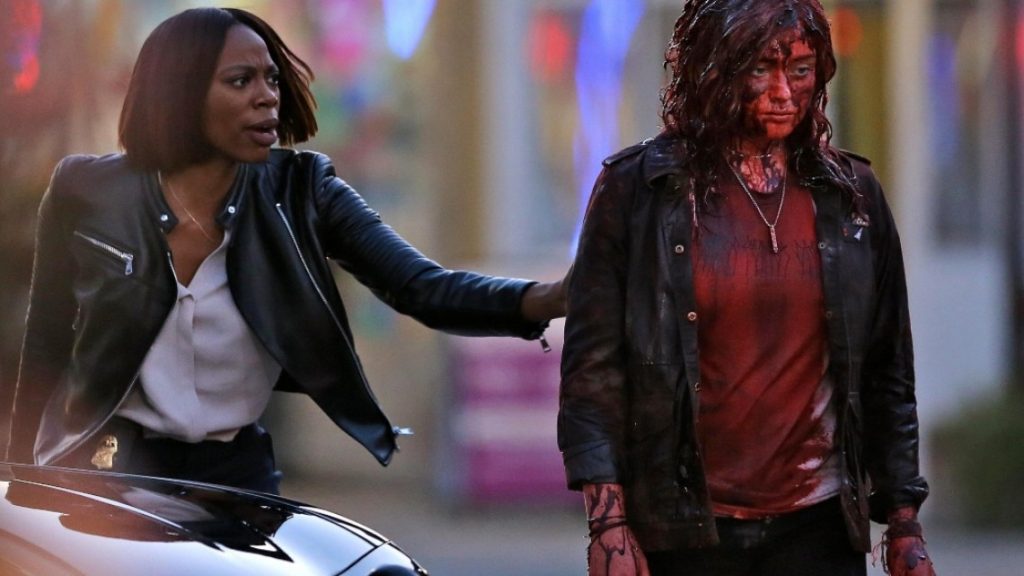
Then once I was like, “It’s just blood.” It became a combination of these blood guns that we called them. They were kind of like fire hoses that you fill with blood and you could change the pressure on them so that they would shoot out at different speeds and at different volumes. We used that quite a bit. I think pretty much every explosion in the movie is a version of a blood gun. Then, I can think of CG enhancements here and there, but even the ones that are like a full shot of someone exploding, which is like half the movie, I think, so you see that happen.
Even that’s blood gunplay, and then you put all the actors and they all react to it. Then, there’s the stuff too where people bring up. There’s a scene where a lot of blood falls down a staircase like a waterfall. That’s just literally a bucket of blood poured onto a floor. Then someone with a push broom pushing it off so it’s very that kind of do-it-yourself-in-college vibe. But the real stuff just looks so good.
Then the challenge of that was because we were a run-and-gun indie, and resetting for blood. By the time you clear a set of all that blood, and then you clean up actors who need to go shower and then dry off. I can’t think of any instance in the movie that it’s not the first take of blood. I think maybe a couple of them towards the end of the big set piece in the movie, just because everyone’s already covered with blood, so there was no need to reset. For the most part, it’s all the first take. So it was just a lot of planning and coordinating, and dry rehearsals where we would kind of practice the move without blood. Then know exactly how the blood’s going to work.
It was a challenge and a very time-consuming challenge. But I think it works. I think in its own way, it’s like this weird star of the movie. It had to really be specific, because it also sets so much of the tone because, with that first pop in the first shot of the movie, the goal was really letting people know you can hang with this movie. It’s not a horror movie. It’s not super broad. This first explosion really sets the tone of what the next 90 minutes are going to be. That was the intention at least.
Emmanuel Gomez: What message do you hope audiences leave with after watching the film?
Brian Duffield: We made the movie, obviously, before this year. Everyone’s going through a scenario that’s not entirely dissimilar from what the movie is. So I feel like a lot of the message is stuff that we all are kind of collectively talking about. Where I think everyone is going crazy because there are so many things they didn’t do that they wish they had done pre-COVID. My wife really wants to travel and go to all the places that she didn’t go to before she was locked in the house for seven months plus.
So, I think it really is that life is going to be shitty and unfair, and that’s part of the deal kind of thing. I think now it probably feels like something that everyone is very keenly aware of because we’ve had this global instance of this crazy thing going on. But I think for me, it was that you can’t control the hand you’re dealt. But to the best of your ability, you can control how you proceed from getting dealt a really crappy hand.
I think that’s the journey Katherine’s character goes through. She starts the movie off really confident and really herself. Then loses a lot of that as the movie goes along. By the end of the movie, it’s not a spoiler, but she kind of rediscovers how to be herself. Definitely has incurred damage along the way that she definitely carries with her. But is also figuring out the ways to put the puzzle pieces back together in a really healthy and hopeful way by the end of the movie, but she has to go through some shit to get there, I guess.
Paramount Pictures’ Spontaneous hits select drive-in theaters today, October 2nd, 2020. The VOD and digital platforms on October 6th, 2020.
Continue the LRM Online conversation on Discord by CLICKING HERE!
—–
Have you checked out LRM Online’s official podcast feed yet The LRM Online Podcast Network? This includes our flagship podcast Los Fanboys. Our premiere podcast Breaking Geek Radio: The Podcast, GeekScholars Movie News, and our morning show LRMornings. Check it out by listening below. It’s also available on all your favorite podcast apps!
Subscribe on: Apple Podcasts | Spotify | SoundCloud | Stitcher | Google Play

 FOR FANBOYS, BY FANBOYS
Have you checked out LRM Online’s official podcasts and videos on The Genreverse Podcast Network? Available on YouTube and all your favorite podcast apps, This multimedia empire includes The Daily CoG, Breaking Geek Radio: The Podcast, GeekScholars Movie News, Anime-Versal Review Podcast, and our Star Wars dedicated podcast The Cantina. Check it out by listening on all your favorite podcast apps, or watching on YouTube!
Subscribe on: Apple Podcasts | Spotify | SoundCloud | Stitcher | Google Play
FOR FANBOYS, BY FANBOYS
Have you checked out LRM Online’s official podcasts and videos on The Genreverse Podcast Network? Available on YouTube and all your favorite podcast apps, This multimedia empire includes The Daily CoG, Breaking Geek Radio: The Podcast, GeekScholars Movie News, Anime-Versal Review Podcast, and our Star Wars dedicated podcast The Cantina. Check it out by listening on all your favorite podcast apps, or watching on YouTube!
Subscribe on: Apple Podcasts | Spotify | SoundCloud | Stitcher | Google Play

